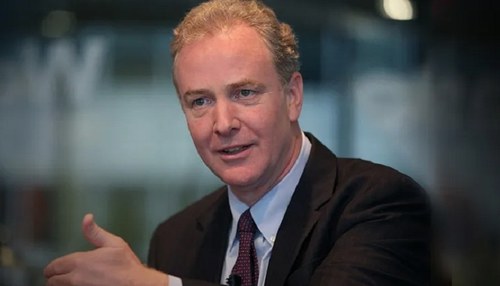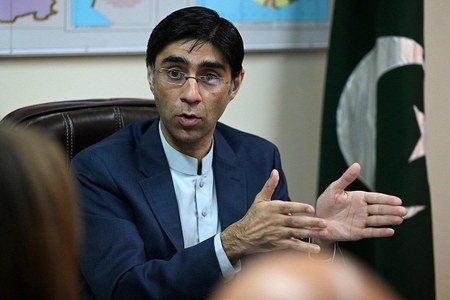Don’t blame Pakistan for Kabul’s fall, US told

WASHINGTON: It was not Pakistan’s military strategy but Afghanistan’s internal problems that caused the collapse of the former Afghan government, argues Islamabad’s US ambassador Asad Majeed Khan.
Last week, Republican Congressman Michael G. Waltz sent a letter to US President Joe Biden, urging him to sanction Pakistan for its alleged support to Taliban militants who, according to Mr Waltz, captured Kabul with Islamabad’s support.
In his response to the letter, Ambassador Khan argued that the US lawmakers had ‘mischaracterised’ Pakistan’s role in Afghanistan. “The contention that Pakistan’s ‘military strategy’ was somehow the decisive factor in the defeat of the 300,000-strong Afghan National Defence and Security Forces (ANDSF) does not square with the US government’s own assessments,” he wrote.
“The issues of low morale, desertions and ghost soldiers had long plagued the ANDSF,” he added. “Demoralised soldiers do not fight for a corrupt, kleptocratic leadership that will bolt at the first hint of trouble.”
Pak envoy says issues of low morale, desertions and ghost soldiers had long plagued Afghan army
In an interview to BBC broadcast on Monday night, Ambassador Khan argued Pakistan was still trying to help create a common understanding among all Afghan factions.
“Our position all along has been that we should encourage and support all Afghan parties to come to a common understanding,” he said, “because getting to a common understanding and their ability to form an inclusive government would avoid the exodus of Afghan refugees”.
“At the same time, Pakistan has been providing every support that it could to facilitate the evacuation of all those wanting to leave Afghanistan,” he said.
Ambassador Khan said that so far more than 9,000 people had transited through Pakistan and Islamabad was still engaged with the international community to facilitate those evacuations.
On Tuesday, US Senator Chris Van Hollen thanked Pakistan among other countries for helping evacuate American nationals and others stranded in Afghanistan following the Taliban’s takeover of the country.
“Even as the last US troops leave Afghanistan, I’ll continue to do everything in my power to bring home all Americans and provide asylum to our Afghan partners endangered by their support to the US…,” Mr Hollen, a Karachi-born Democrat from Maryland, said in a tweet.
Ambassador Khan, who had a telephonic conversation with Mr Hollen on Monday, said he briefed the US Senator on “Pakistan’s support for evacuations of US, Afghan and other nationals from Afghanistan”.
He said that he also shared with the US lawmaker Pakistan’s “perspective on the urgency of securing an inclusive political settlement in Afghanistan”.
Published in Dawn, September 1st, 2021












































